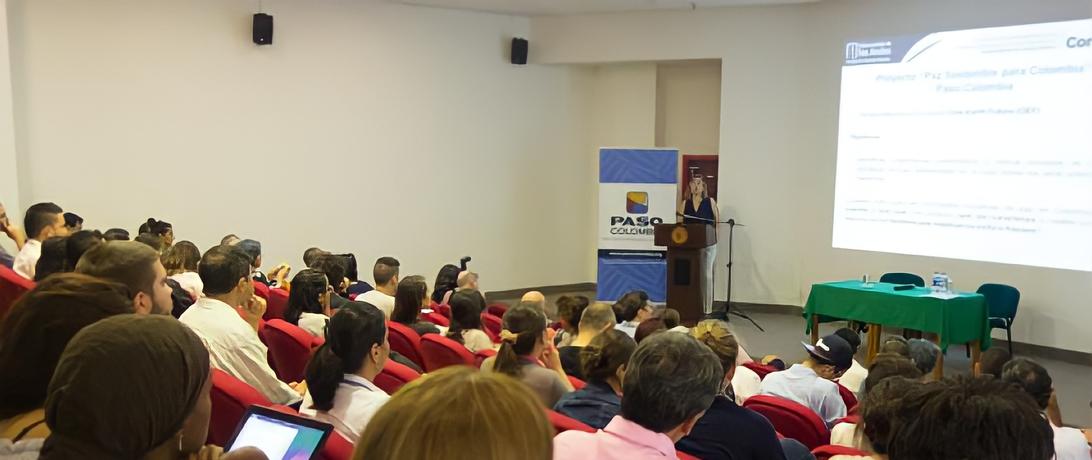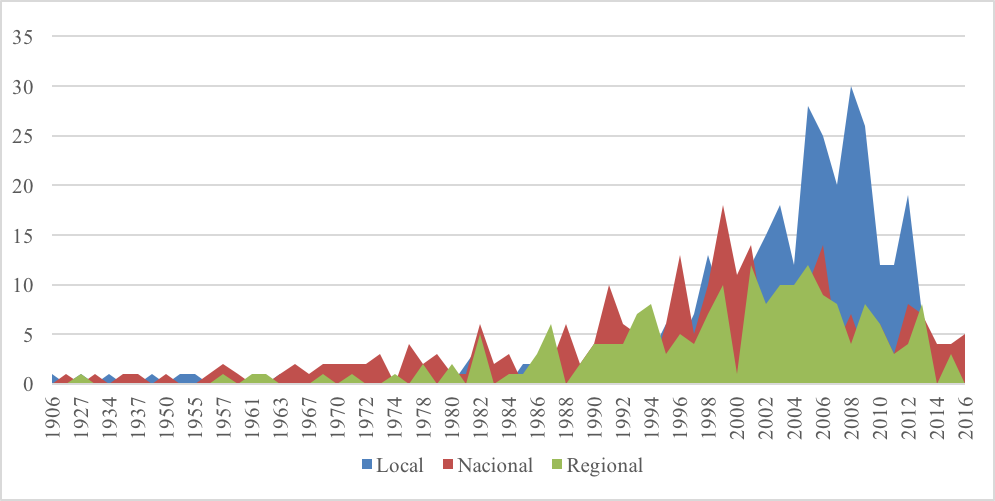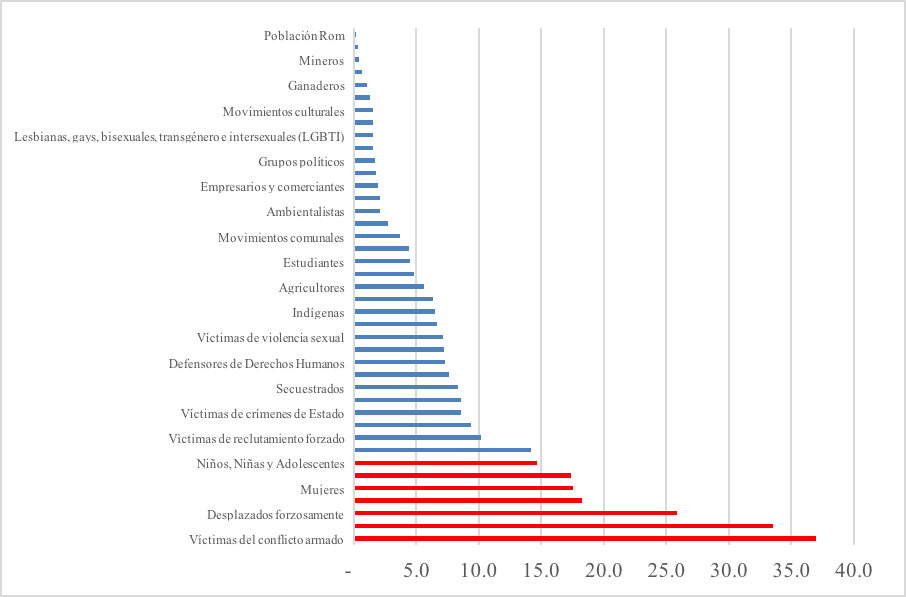
The University of the Andes and PASO Colombia announce the most comprehensive study on peace initiatives in Colombia.
June 14, 2017 - Santiago de Cali, Colombia - The University of the Andes and PASO Colombia, a program of One Earth Future, a U.S.-based NGO focused on creating a more peaceful world, recently released the most ambitious study of peace initiatives in civil society in Colombia. Analyzing nearly 4,000 sources of information from social organizations, the press, the public sector, and academia from 1985 to 2016, the study identifies more than 1,900 peace initiatives. It was designed to shed light on how grassroots peace initiatives are created, their common characteristics, and the factors which make them successful.
Findings of the study were presented to members of the peace initiatives, grassroots organizations, local government officials, academics, students, NGOs, and multilateral organizations by Angelika Rettberg, director of the Research Program on Armed Conflict and Peacebuilding (ConPaz) at the University of the Andes, and by Juan Fernando Lucio, director of PASO Colombia.
PEACE BLOOMS FROM BOTH HOPE AND DESPAIR
The study finds peace initiatives tend to arise at two seemingly opposing turning points: when negotiations for peace are on the public agenda, and when armed conflict intensifies to the point citizens lose faith in the state’s ability to adequately respond to the escalating violence.
Rettberg stressed: “The peak in the emergence of peace initiatives corresponds to the years of the demobilization process of the United Self-Defense Forces of Colombia (AUC), especially in the regions hardest hit by this armed force. The agendas of these peace initiatives are mostly related to transitional justice, historic memory, and recognition of the victims. In those years, with the Peace and Justice Law, the victims were born as institutionally recognized actors."
In this regard Lucio affirmed: “The demobilization of the AUC opened the doors to many movements that could not be expressed before. That post-conflict made possible the one that comes after the reinstatement of the FARC, which will probably have many more initiatives related to issues of land and rural development."
GRAPH: YEAR OF CREATION AND GEOGRAPHICAL REACH

CHARACTERIZATION DATA
The study identifies three large groups of people on which most peace initiatives are focused: the victims of the armed conflict (37%), the general population (33.5%), and the forcibly displaced population (25.8%). Ex-combatants are the focus of only 6.7%, but initiatives dedicated to this group emerge around demobilization processes.
Main sources of financing for peace initiatives are the state (14.4%), followed by the private sector (12.3%), and international cooperation (12%). Financial autonomy is important for long-term success.
Most grassroots peace initiatives are registered in Bogotá, Cali, Medellín, Cartagena, and Buenaventura. Not necessarily because the initiatives focus their work in these communities, but because it is where they have better access to institutional services.
GRAPH: TARGET POPULATION (IN PERCENTAGES)

IMPORTANCE OF THE STUDY
This study is of extreme importance for the current peace process in Colombia because, as the study points out, “the stability and progress of the country’s post-conflict will depend on the capacity of civil society to articulate their demands and proposals around the different national and regional projects.” With the information this study provides, those who participate in citizens' initiatives, as well as the state and the rest of civil society, can learn from the experience, identify relevant partners, and replicate good practices.
Providing the public with useful information to implement peace initiatives is a fundamental part of PASO Colombia's work," said Lucio. "We promote partnerships between strategic actors linked to peace and public and private entities who can contribute to make peace initiatives sustainable. This study provides invaluable information for this purpose.
Rettberg called the abundance and diversity of peace initiatives from civil society “the great treasure Colombia has in front of the challenges that come with peacebuilding. These initiatives constitute the social ground that will support this building even after peace stops being the priority in the political and institutional agenda.”
The study has two versions, one for Cali and Buenaventura, and a national version. The full study, as well as well as the data base and videos of the event are available here: 1900 Peace Initiatives in Colombia.
MEDIA CONTACT
Fernando Pieschacón.
Cel: 3164703968,
Mail: [email protected]
MEDIA LINKS:
El País. Principal períodico del Valle del Cauca
Noti5 de Telepacífico, Canal Regional Público
Pazífico Noticias. Noticiero local (ver minuto 11)
Article Details
Published
Topic
Program
Content Type
News